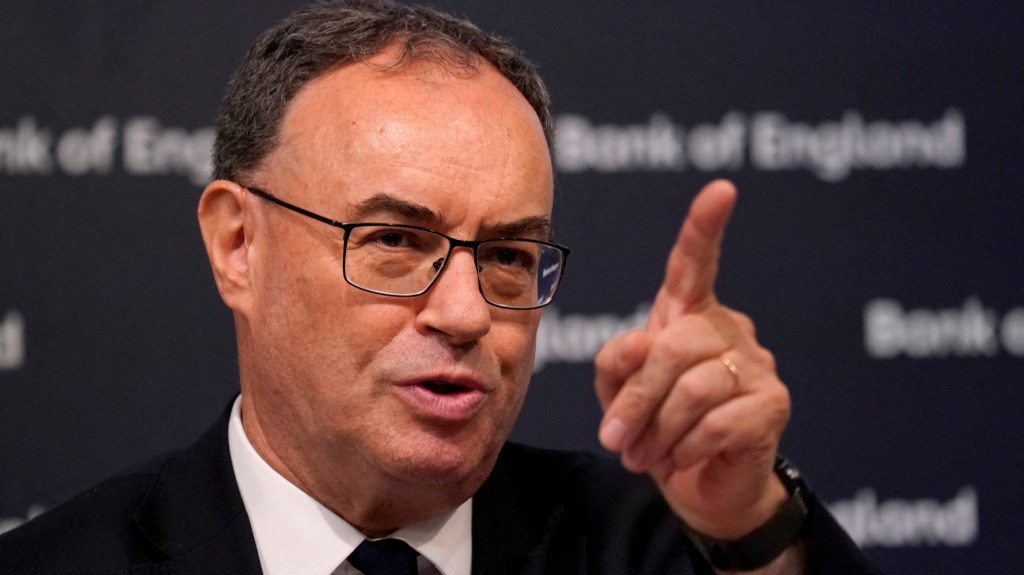Andrew Bailey, the Governor of the Bank of England, indicated that the central bank could adopt a “bit more aggressive” stance on reducing interest rates if inflation continues to decline. However, he cautioned that rising oil prices could emerge as a significant risk if a larger conflict between Iran and Israel unfolds.
Bailey’s comments regarding the potential acceleration of the monetary policy committee’s (MPC) rate lowering contributed to a 1.05% drop in the value of the pound, which fell to $1.31. Traders seeking safer investments amidst escalating tensions in the Middle East likely exacerbated this decline.
During an interview with The Guardian, Bailey described the current situation in the Middle East as “very serious” and highlighted the risk of a crisis reminiscent of the 1970s oil shocks if tensions escalate further.
At 65, Bailey stated that his discussions with regional counterparts reveal a strong current effort to maintain market stability, although he acknowledged that there could be limits to this control if conditions deteriorate.
“It’s a considerable advantage that we haven’t faced a significant rise in oil prices recently, but our past experiences tell us that such increases can heavily influence the economic landscape, particularly as we saw in the 1970s,” he added.
UK inflation has significantly decreased to 2.2%, down from a peak of 11.1% in October 2022.
In the last two days, the prices of Brent Crude and WTI, internationally recognized oil benchmarks, surged past $70 per barrel following Israel’s military actions in southern Lebanon and Iran’s missile response.
Earlier this year, oil prices were on a steady decline due to weak demand from China and speculations regarding increased supplies from Saudi Arabia.
The MPC, which includes Bailey, voted 8-1 to maintain the UK base interest rate at 5% in their latest meeting last month. The committee had previously lowered rates by 25 basis points in August, marking the first reduction since March 2020. Many traders anticipate another quarter-point cut in the forthcoming month.
In response to criticisms from former Prime Minister Liz Truss, who claimed he was part of an alleged leftist economic agenda that led to her downfall, Bailey emphasized the Bank of England’s role during the pension crisis triggered by Truss’s mini-budget. He stated, “I recall Liz Truss declaring that it was a financial stability issue for the Bank of England to manage. We acted and used our tools to address the situation.”
Truss’s unexpected £45 billion tax cuts, which lacked funding, caused a spike in interest rates and a significant drop in bond prices. This prompted pension funds to sell off bonds to raise necessary funds, leading to further rate increases and forcing the Bank of England to execute a temporary bond-buying initiative to stabilize the market.
Bailey noted the irony in Truss criticizing regulators while simultaneously suggesting that the Bank of England failed to impose adequate regulation.
He also reiterated that Rachel Reeves, the Chancellor of the Exchequer, rightly emphasizes enhancing capital investment as a means to tackle climate issues and stagnant productivity.
The current gloomy narrative surrounding the UK economy, as framed by Reeves and Labour leader Sir Keir Starmer, has contributed to a notable decline in both business and consumer confidence. The government is anticipated to announce tax increases in the budget on October 30 but may balance this fiscal restraint with increased public investments.
In summary, central bankers’ comments carry significant weight, and Andrew Bailey has effectively used his recent remarks to influence future investor expectations. His shift towards a more dovish perspective on interest rates marks a notable deviation from the Bank’s previous statements, where a gradual approach to policy easing was deemed appropriate unless significant changes occurred.
Recent MPC discussions indicated a range of opinions regarding the timeline for easing price pressures, hinting that some committee members may hold differing views on inflation’s trajectory. The degree of aggressiveness in future rate adjustments will largely be determined by incoming economic data that resonates with the overarching belief on the MPC that inflation has stabilized close to the target of 2%.
This ongoing uncertainty regarding growth, compounded by Labour’s prevailing economic outlook, could significantly influence the opinions and decisions of Bailey and the MPC in the near future.
